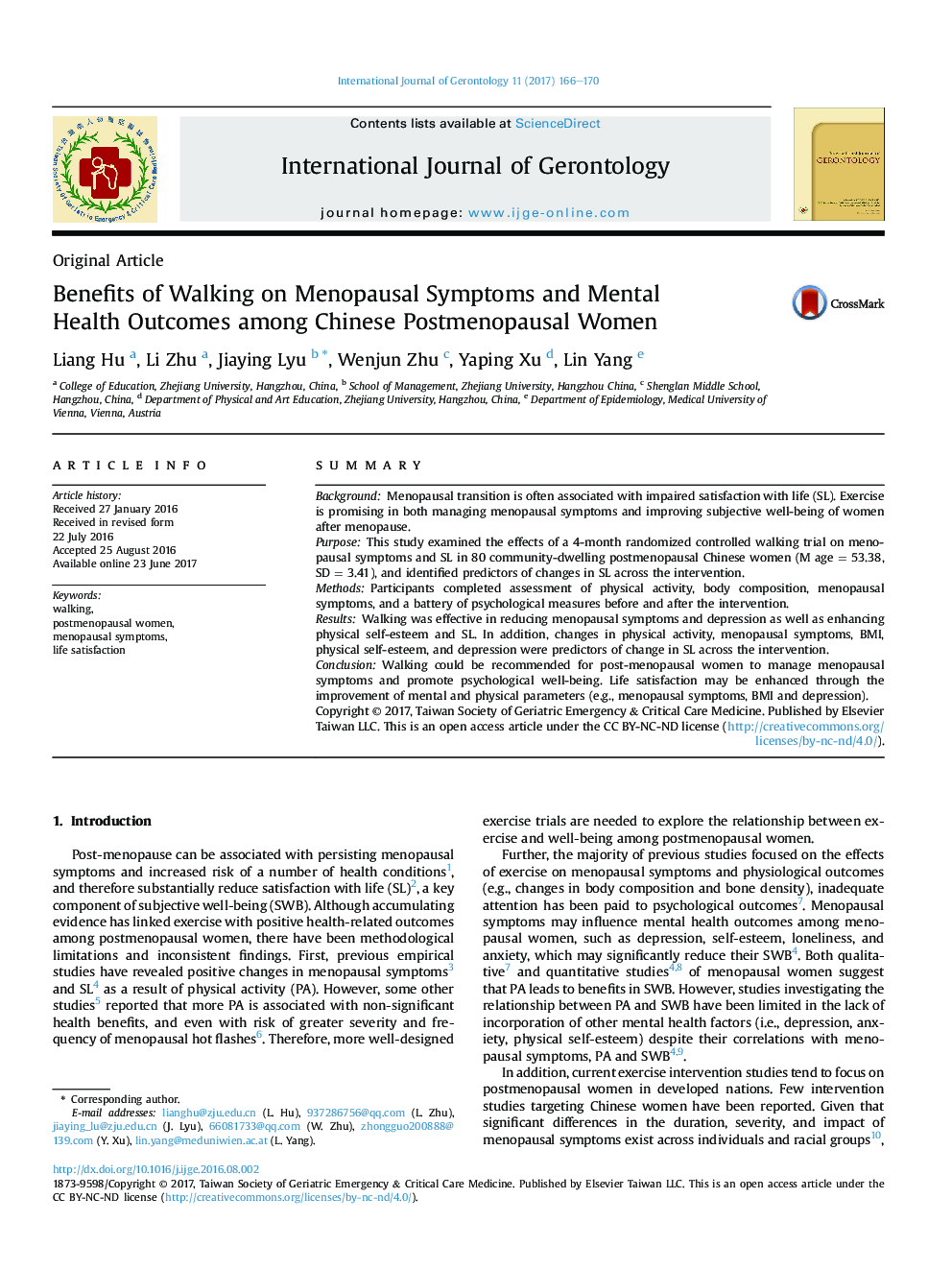| Article ID | Journal | Published Year | Pages | File Type |
|---|---|---|---|---|
| 5662656 | International Journal of Gerontology | 2017 | 5 Pages |
SummaryBackgroundMenopausal transition is often associated with impaired satisfaction with life (SL). Exercise is promising in both managing menopausal symptoms and improving subjective well-being of women after menopause.PurposeThis study examined the effects of a 4-month randomized controlled walking trial on menopausal symptoms and SL in 80 community-dwelling postmenopausal Chinese women (M age = 53.38, SD = 3.41), and identified predictors of changes in SL across the intervention.MethodsParticipants completed assessment of physical activity, body composition, menopausal symptoms, and a battery of psychological measures before and after the intervention.ResultsWalking was effective in reducing menopausal symptoms and depression as well as enhancing physical self-esteem and SL. In addition, changes in physical activity, menopausal symptoms, BMI, physical self-esteem, and depression were predictors of change in SL across the intervention.ConclusionWalking could be recommended for post-menopausal women to manage menopausal symptoms and promote psychological well-being. Life satisfaction may be enhanced through the improvement of mental and physical parameters (e.g., menopausal symptoms, BMI and depression).
